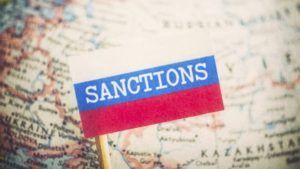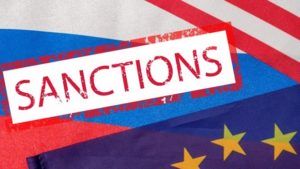Russian Response to Western Sanctions: Exclusive Jurisdiction of State Commercial Courts
On 8 June 2020, the Russian legislator has implemented changes to the Russian Commercial Procedure Code. The amendment grants Russian commercial courts exclusive jurisdiction over certain types of disputes whose subject matter relates to foreign sanctions or disputes involving sanctioned individuals and legal entities. At the request by sanctioned parties, Russian commercial courts now have the authority to issue anti-suit injunctions to deter opposing parties from initiating or continuing arbitral or court proceedings in foreign states.
More than six years have passed since the imposition of sanctions against Russia due to the crisis in Crimea and Eastern Ukraine. In 2014 some Western countries levelled an array of economic sanctions targeting a number of Russian individuals and organizations.
Restrictive measures include blacklisting of certain individuals, imposing trade barriers, embargoes, bans and other protectionist measures against various industry sectors such as banking, military and energy. As regards international arbitration setting, sanctions came into play in a variety of situations and legal contexts involving both procedure and substance of disputes.
In practical terms, sanctions impacted the entire arbitration process starting from initiation and administration of arbitral proceedings to recognition and enforcement of final arbitral awards. Stakeholders raised concerns regarding the issue of arbitrability and potential impediments to the enforceability of awards.
Much controversy also arose on whether Western arbitrators’ services amounted to “technical assistance” prohibited by the sanctions. Lastly, the asset-freezing, limitations on international bank transfers created further practical obstacles to conducting arbitration proceedings, that caused justified anxiety in the business community and other users of arbitration.
Russian commercial courts obtain exclusive jurisdiction over sanctions-related matters
The Federal Law enshrined exclusive subject-matter and personal jurisdiction over disputes and parties affected by foreign restrictive measures aimed at Russia in Russian commercial courts. Under the newly adopted article 268(1) of the Commercial Procedure Code, exclusive personal jurisdiction over natural and legal persons that are subject to foreign sanctions is assigned to the commercial courts. The exclusive jurisdiction further applies to all disputes relating to the application of such sanctions, irrespective of the nationality of the parties.
The provision should be read to encompass Russian individuals and legal entities, as well as foreign legal entities, against whom sanctions had been imposed. It must be noted that the scope of application does not include situations where an international treaty, signed by the Russian Federation, provides for resolution of disputes before a foreign forum. Neither does it cover situations in which the parties to the dispute have duly agreed to assign their disputes to the competence of a foreign court or international arbitration based in a foreign jurisdiction.
There is, however, a legal loophole that allows disregarding private choice-of-forum agreements where such agreements cannot be enforced because sanctions imposed on any party to the proceedings cause “obstacles in the access to justice”. Such ambiguous language opens up the possibility for potentially broad interpretation and controversial application of the provision in practice.
 By way of illustration, the chosen criteria of “obstacles in the access to justice” could arguably encompass situations when a witness could not attend hearings in a foreign forum and when a party could not pay initial filing fees. The precise interpretation is, however, subject to judicial discretion: it is unclear whether, for instance, only key witnesses’ inability to participate meets the test, or whether the possibility of deposition or remote participation of such witness makes any difference. As for the fees, virtually all arbitration institutions’ rules allow for any party to pay the other party’s share should the other party fail to pay it.
By way of illustration, the chosen criteria of “obstacles in the access to justice” could arguably encompass situations when a witness could not attend hearings in a foreign forum and when a party could not pay initial filing fees. The precise interpretation is, however, subject to judicial discretion: it is unclear whether, for instance, only key witnesses’ inability to participate meets the test, or whether the possibility of deposition or remote participation of such witness makes any difference. As for the fees, virtually all arbitration institutions’ rules allow for any party to pay the other party’s share should the other party fail to pay it.
Further, the amendment does not distinguish between the types of sanctions and, therefore, it presumably covers both sectoral sanctions, as well as those natural and legal persons whose assets are blocked or frozen because of the sanctions. The provision employs a broad definition of “restrictive measures”, that in turn might originate from a state, public body or union of several states.
Lastly, a literal interpretation of subparagraph 5 of Article 248(1) suggests that the party might forfeit the Russian commercial court’s exclusive jurisdiction by initiating proceedings abroad or waiving defense by not raising timely objections to the foreign court’s lack of jurisdiction over the dispute. It is, however, unclear to what extent this provision will affect on-going proceedings, that had been already initiated before the implementation of the new law.
Russian commercial courts can issue anti-suit injunctions and award damages
The new amendment to the Russian Commercial Procedure Code expressly states that commercial courts have the power to grant anti-suit injunctions to bar an opposing party from commencing or continuing proceedings in a foreign jurisdiction. Article 248(2) of the Commercial Procedure Code sets out detailed procedure and instructions for submitting an application for an anti-suit injunction, and related procedural rules for making objections and appeal from the decision granting such an injunction.
To obtain injunctive relief, the petitioner must plead specific facts confirming Russian commercial court’s exclusive competence to hear the dispute (based on subject-matter or personal jurisdiction) and demonstrate evidence of a potential threat of the initiation of foreign proceedings. Thus, there is no ripeness requirement: the court might grant a request for an anti-suit injunction restraining the opposing party from both initiating and continuing foreign legal proceedings.
There is no requirement that the petitioner must initially seek to challenge the jurisdiction of a foreign forum before applying for injunctive relief, nor that it has to post a security bond to cover potential damages of the opposing party. The new rule does not specify precise time frames for making applications for the anti-suit injunction, but in any event, such an application must be made promptly. The further foreign proceedings have advanced, the more difficult it might be to obtain the relief, or the Russian court might deem the right to obtain such relief waived altogether.
As with any injunction, anti-suit injunctions operate by binding those against whom they are made, however, the injunction has no automatic bearing on foreign courts to accord recognition to such decrees. A key advantage of obtaining such an anti-suit injunction is that if it is breached and judgment or arbitral award is obtained in a foreign forum, any such verdict will most likely be unenforceable in Russia on public policy grounds.
Violating an injunction is a contempt of court, therefore, breach of an anti-suit injunction can have grave implications. A sanctioned party may bring the offence to the attention of the commercial court to seek remedial measures. The Commercial Procedure Code now expressly authorizes commercial courts to grant compensation for any harm the petitioner suffered as a result of the counterparty’s violation of the injunction. The court might award monetary damages against foreign counterparts that have been enjoined in case they fail to obey the court’s order to discontinue foreign proceedings. The amount of the award should not exceed the total amount as claimed in foreign proceedings, plus the requesting party’s litigation costs.
Concluding remarks
The amendment will have far-reaching implications on international arbitral proceedings involving Russian parties and may significantly obstruct already ongoing arbitration and court proceedings taking place in foreign jurisdictions.
Arguably, the changes might have a greater negative effect on Russian parties rather than on their foreign counterparts by posing further complications in negotiating new contracts and closing deals. Certain foreign parties are unlikely to relish the prospect of appearing before Russian courts, so in practice, this might present a crippling impediment.
Further, judicial interference with a foreign state’s exercise of its adjudicatory authority could arguably adversely affect Russia’s relations with other states and impede enforcement in foreign states of judgments and awards rendered in Russia. It is, however, still early to speculate whether Russian courts will employ the tool in rare instances rather as a drastic remedy or will apply for injunctive relief as a matter of course.
Lastly, although anti-suit injunctions are addressed to the private parties to the dispute rather than to the foreign courts, that might accordingly decide to disregard it, party’s failure to obey the court’s order, however, constitutes a contempt of court. Failure to comply with the newly amended rules of exclusive jurisdiction will result in the refusal of recognition and enforcement of foreign judgments and arbitral awards in Russia.












